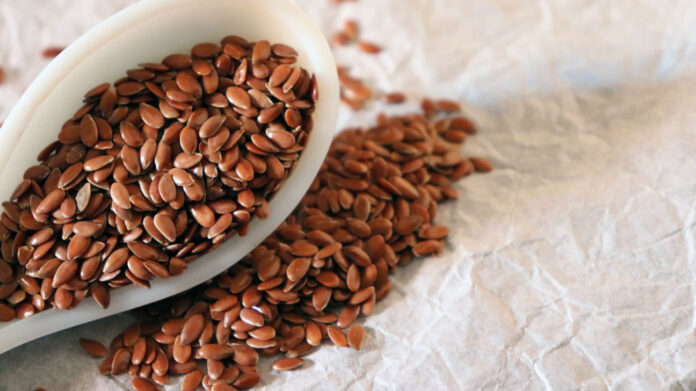Flax seeds, also known as linseeds, are tiny, golden or brown seeds that come from the flax plant (Linum usitatissimum). They’ve been consumed for centuries, primarily for their health benefits and culinary versatility. Here’s a breakdown of what makes flax seeds so special:
- Nutritional Powerhouse: Flax seeds are packed with nutrients. They are an excellent source of omega-3 fatty acids, lignans (a type of phytoestrogen), and fiber. They also contain protein, vitamins (especially B vitamins), and minerals like manganese, magnesium, and phosphorus.
- Omega-3 Fatty Acids: Flax seeds are one of the richest plant-based sources of alpha-linolenic acid (ALA), a type of omega-3 fatty acid. These essential fatty acids play crucial roles in heart health, brain function, and reducing inflammation in the body.
- Rich in Fiber: Flax seeds are high in soluble and insoluble fiber. Soluble fiber can help lower cholesterol levels and regulate blood sugar levels, while insoluble fiber supports digestive health by promoting regular bowel movements.
- Lignans: Flax seeds contain high levels of lignans, which are plant compounds with antioxidant and estrogenic properties. These lignans may have protective effects against certain cancers, particularly breast and prostate cancer.
- Versatile: Flax seeds can be easily incorporated into various dishes. They have a mild, nutty flavor that complements both sweet and savory dishes. You can sprinkle ground flax seeds on oatmeal, yogurt, or salads, add them to smoothies, or use them in baking recipes for muffins, bread, and pancakes.
- Potential Health Benefits: Consuming flax seeds regularly may offer several health benefits, including improved heart health, reduced inflammation, better digestive function, and possibly a lower risk of certain chronic diseases.
- Whole vs. Ground: While whole flax seeds are nutritious, they may pass through the digestive system undigested, limiting the body’s ability to absorb their nutrients. Grinding flax seeds into a powder before consumption enhances their digestibility and nutrient absorption.
- Storage: Flax seeds have a high fat content, which can make them prone to rancidity. To maintain freshness, store flax seeds in an airtight container in the refrigerator or freezer.
Overall, flax seeds are a versatile and nutritious addition to a balanced diet, offering an array of health benefits when consumed regularly.



